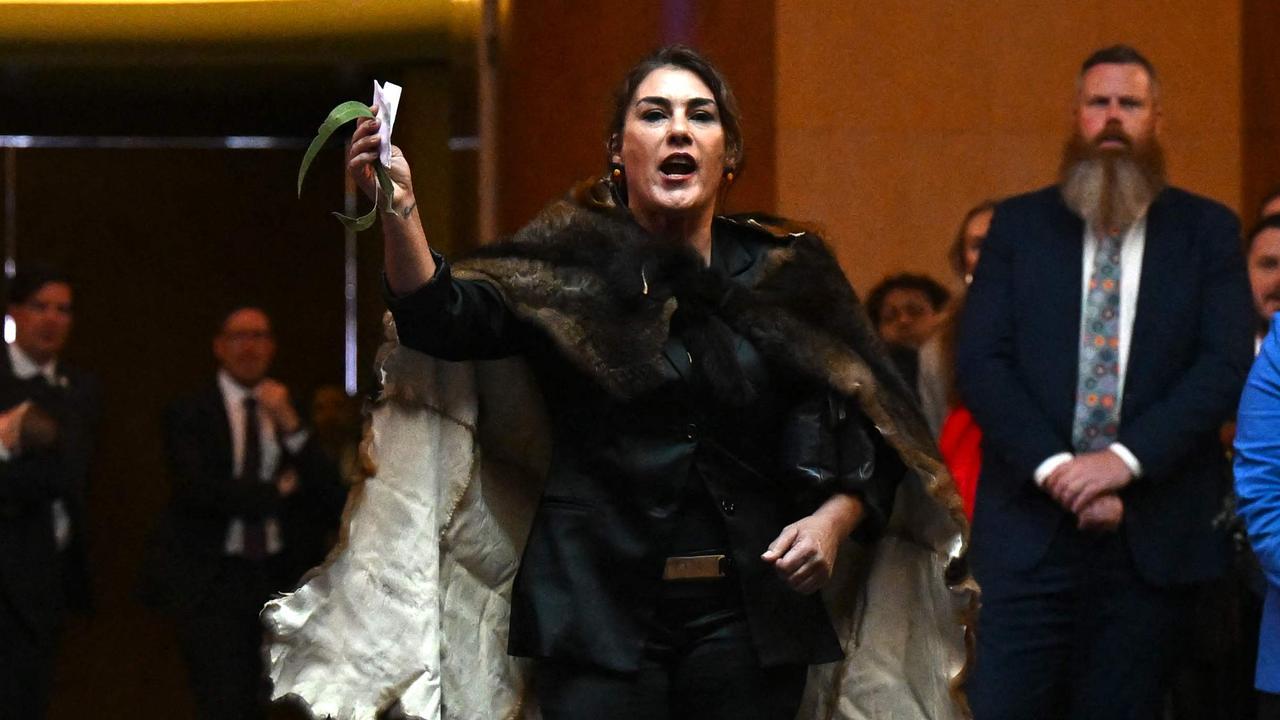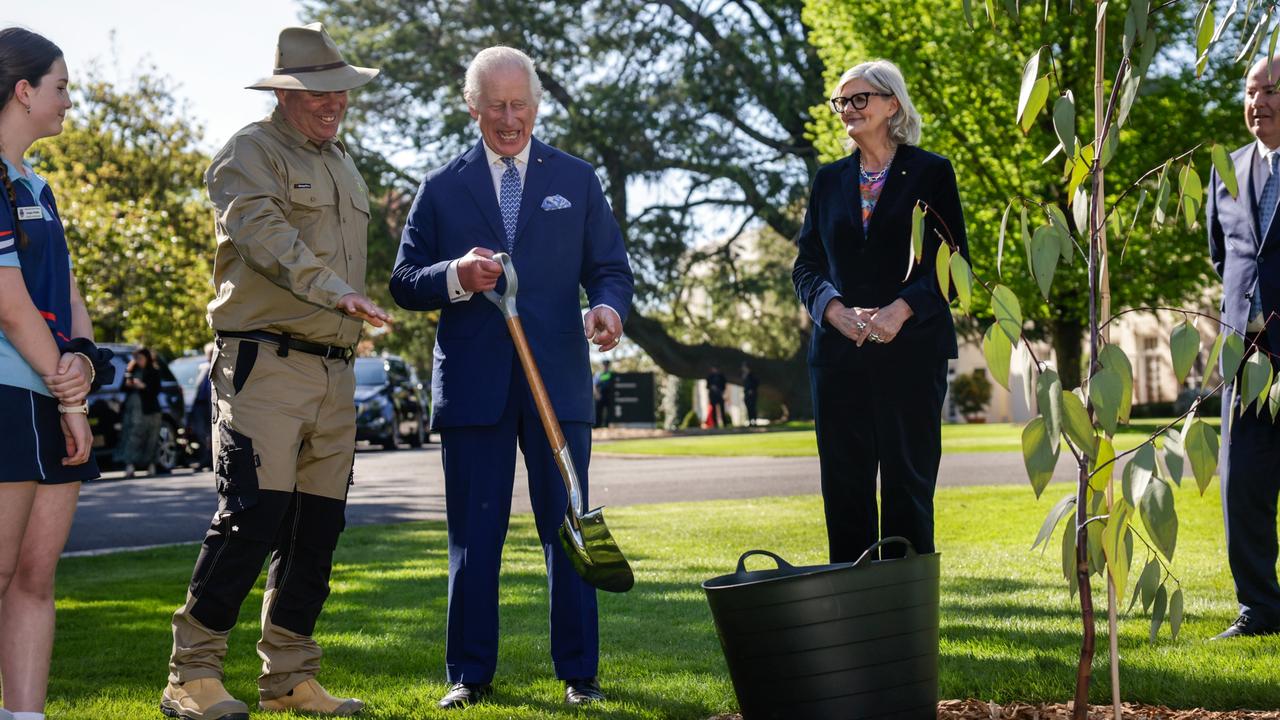Clive Palmer and Craig Kelly’s United Australia Party now nation’s biggest
In 2019, votes for Clive Palmer’s party helped to re-elect Scott Morrison. Now Palmer’s UAP has 70k members, a seemingly limitless budget, and its own leader who ‘could be PM’.

National
Don't miss out on the headlines from National. Followed categories will be added to My News.
He’s back. And this time Clive Palmer has everyone in his sights.
In 2019 the billionaire Queenslander spent $60 million on relentlessly anti-Labor messages that helped to re-elect Scott Morrison.
Now his message is different: you can’t trust Labor, the Liberals or the Greens. And he’s on a roll.
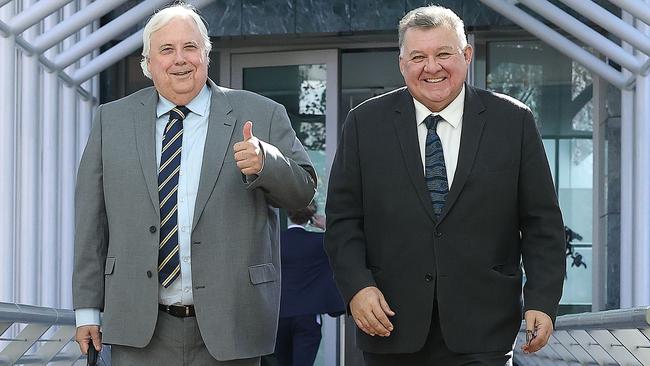
Between 300 and 400 people are joining his United Australia Party each day. Last week it passed 70,000 members — making it the biggest party in the country.
And once again Palmer is spending up big.
All across Australia there are UAP ads on the front pages of newspapers and in high-rating free-to-air shows such as SAS Australia.
In just the past two months he’s spent more $1.2 million on YouTube ads alone, one of which has been seen 4.5 million times.
Already there are 350 UAP billboards across the country — except in Victoria which only came out of lockdown on Friday — with another 250 soon to join them.
And it looks like it’s working.
According to polling by the Labor-linked pollster RedBridge, the UAP primary vote is 17 per cent in the Western Sydney seats of Lindsay, Macquarie and Banks.
Palmer claims his support is similar across NSW, Queensland and Victoria, and he says he hopes to take it higher.
“We’re approaching 20 per cent in all these states,” he told The Saturday Telegraph this week.
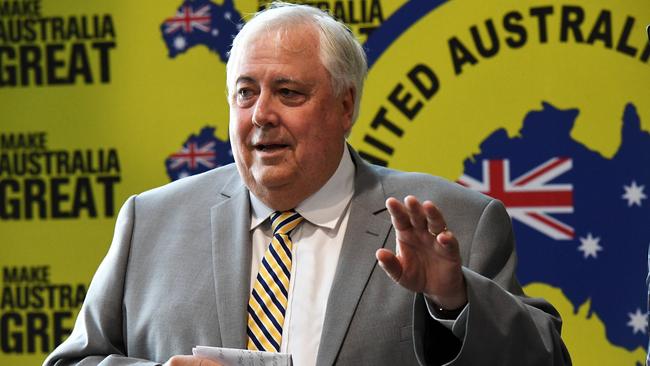
What has turbocharged the UAP’s resurgence was Palmer’s decision in August to make rebel Liberal Craig Kelly the face of the party.
Kelly, a long-time climate change sceptic, left the Liberal Party in February after being told off by the Prime Minister for spruiking alternative Covid therapies.
Palmer can’t speak highly enough of Kelly.
“I’m 67, Craig’s in his mid-50s, he’s got the vision, he’s got the character and I’m certainly there to support him with our assets, whatever I can do to give him a fair go,” he said.
“He’s the one. He’s 100 per cent genuine. Who’s to say he can’t be prime minister?”
Palmer says the key to Kelly’s appeal is his sincerity.
“He’s authentic. He’s telling people what he believes. It’s a question of honesty and trust,” he said.
Pollster John Scales, from JWS Research, who been studying voting behaviour for more than two decades, has detected a change in the typical Palmer voter since the last election.
In 2019 Palmer’s vote skewed towards men, aged over 65, people who tended to be voting against another party. They were also more likely to have a low education, be unemployed or on a low income.
One pollster characterises this as “the f... youse all” vote, which in Queensland has often gone to Pauline Hanson.
Scales has detected a change in more recent polling.
The UAP voter is still more likely to be male and have little education, but Scales says they are now more likely to be under the age of 54.
Scales characterise them differently, calling Palmer’s voters “the Trumpy middle”, a group made of “skilled labourers, and lower-end middle-management”.
“If you look at Trump’s base it’s very similar,” he said.
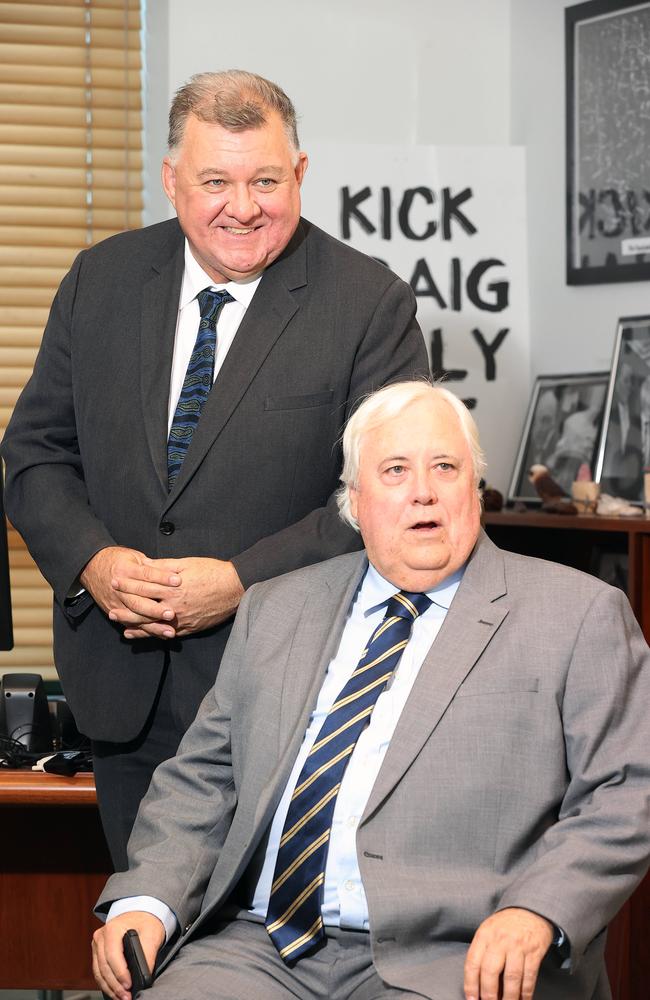
According to Scales, while Hanson’s vote is largely confined to Anglo-Australians, Palmer is much more likely to find supporters among third-generation Greeks and Italians in both Sydney and Melbourne
Palmer claims “the majority of members are under 40”.
So where have they come from?
When people join the UAP they are asked if they have ever been a member of another political party.
Palmer says about 35,000 have answered no to that question.
About another 20,000, he says, claim that at some point in their lives they have been members of the ALP, while another 13,000 have been in the Liberal or National parties.
Surprisingly, Palmer says about 3000 people say they have been in the Greens.
“We ask them ‘why did they leave the political party?’ and those ones were overwhelmingly because they were against mandatory vaccine,” he said.
Opposition to mandatory vaccination has been at the heart of Palmer and Kelly’s messaging since they teamed up.
That position has an appeal to voters that goes much wider than the anti-vaxxer fringe.
“We estimate about 25,000 (members) are double-jabbed,” Palmer said.
“One of the reasons they joined is they got double-vaccinated because they thought they’d get more liberty and they find that’s not the case at all.”
Though Palmer himself is not vaccinated (“Why would anyone be vaccinated in Queensland when there’s no Covid?”), he denies he is against immunisation.
“Our party is not anti-vax, it’s freedom of choice,” he said.
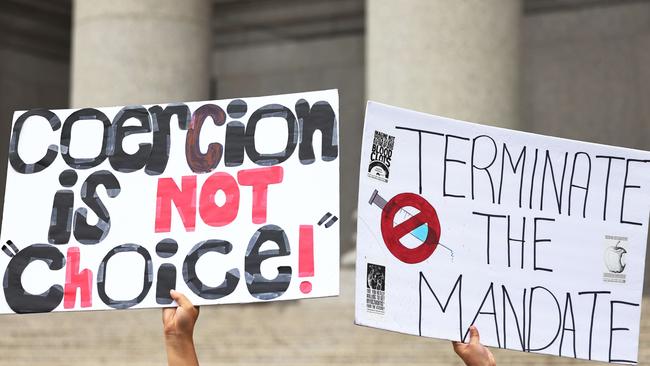
Mr Palmer said the party had been inundated with applications to run for the party in the past few weeks.
“We’ve already got a thousand nominations for House of Representatives seats and over 500 for the Senate seats around Australia,” he said.
“Australians are pretty much disgusted with what’s been going on and our party slogan is of course you cannot trust Liberal, Labor or the Greens.”
He said had no plans to run for a seat for the party himself at this stage.
“I’m very reluctant (to run as a candidate) because I’ve got a nice big boat that’s come into Brisbane that I’d like to get out and go fishing and stuff like that, plus I think I have got less to offer in the future,“ he said.
Inside the major parties, opinions differ about how seriously they need to take the Third Coming of Clive.
One senior Labor figure who has known him for many years says it doesn’t do to underestimate him.
“He’s been around politics for decades (in the Queensland Liberal Party), he’s not just some billionaire who’s just walked into it,” he said.
The sceptical view inside the government starts with the fact Palmer spent $90 million last time without winning a seat.
A senior Liberal source said he was unconvinced by RedBridge’s numbers: “I haven’t seen anything like that in our data. I think it is more likely to be in single digits.”
The source said that while anyone who could spend money like Palmer needed to be taken seriously, it wasn’t clear that it was going to be more effective and targeted than last time.
“His messages are very much around lockdowns, but by the time of the election hopefully there won’t be any lockdowns, or it certainly won’t be anything like it’s been the last few months,” the source said.
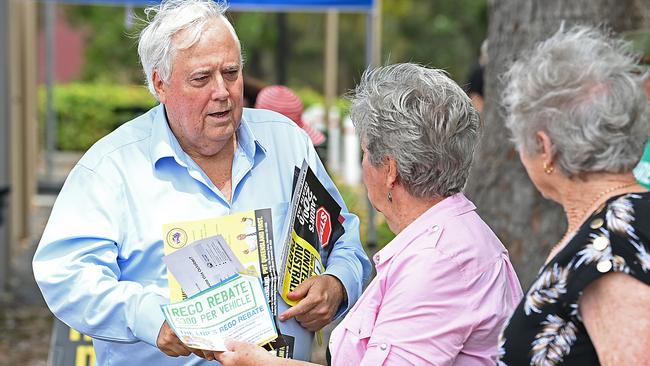
On the other hand, a senior minister thinks the government is in danger of missing how important Palmer’s messages could be. “Last time the message in his ads were our messages, well they’re not now,” he said.
The minister was mainly referring to Palmer and Kelly’s other great policy: Opposition to net zero.
National Party MPs are terrified of Palmer running ads about this in their seats because they fear it will make it impossible to sell whatever deal the Coalition partners reach on the policy.
The chances are, however, that most of the second preferences from UAP votes that come from National Party and Liberal voters will end up coming back to the Coalition.
That’s what happened in 2019, when 80 per cent of Palmer’s vote went to the Coalition.
Labor has cause to be far more concerned about that preference split, because the second preferences of UAP voters who come from Labor also ended up going to the Coalition.
Recently Julian Hill, who sits for the southeastern Melbourne seat of Bruce, posted a long video to YouTube in which he talked about his frustration at the number people who had interacted with him in support of Palmer.
“Clearly some people are being fooled,” he told The Saturday Telegraph. “My message is: ‘do what you like mate, but understand if you vote for him you’re being scammed’.
“He’s running a giant preference harvesting machine for the Liberal Party. A vote for Clive Palmer and Craig Kelly is a vote for Scott Morrison.”
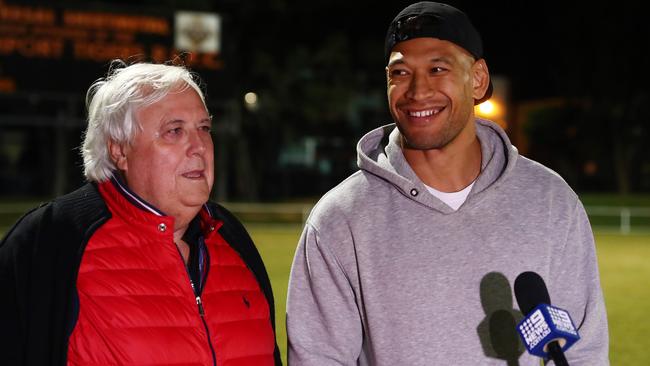
A Labor senator agrees that Palmer helps the government, but for different reasons.
“Clive is good for Scott (Morrison) because they can get their anti-vaxxer anger out of their system but he gets their preferences,” the senator said.
This senator met recently with senior evangelical Christian leaders and had been surprised at how warmly they had spoken about the UAP.
“They said ‘we’re voting for Craig’,” the senator said.
Not only were they thinking of voting for the UAP, they were apparently also thinking about handing out for him: “They said they were wondering what they should do on polling day.”
In 2019 Palmer was forced to man polling booths using paid workers, never the most enthusiastic handers-out of how-to-vote cards. Motivated volunteers could be a game-changer.
If Christian groups do end up working for the UAP, Palmer can probably thank his decision to publicly back their poster boy for religious freedom, rugby union and league player Israel Folau.
But given the UAP has more than 70,000 members, finding help isn’t likely to a problem at this election.
Returning to the issue that most concerns the mainstream parties: the UAP’s preferences and where they are going to go.
Palmer is giving nothing away.
“We’ll be preferencing parties that can most achieve our policy objectives or the reason why people have joined us,” he said. “If it was for any other reason I’d be lynched.
“We don’t know who that will be. We’ve had no discussions with Liberal, Labor or anyone.
“Our slogan is you can never trust Liberal, Labor or the Greens.”
More Coverage
Originally published as Clive Palmer and Craig Kelly’s United Australia Party now nation’s biggest



